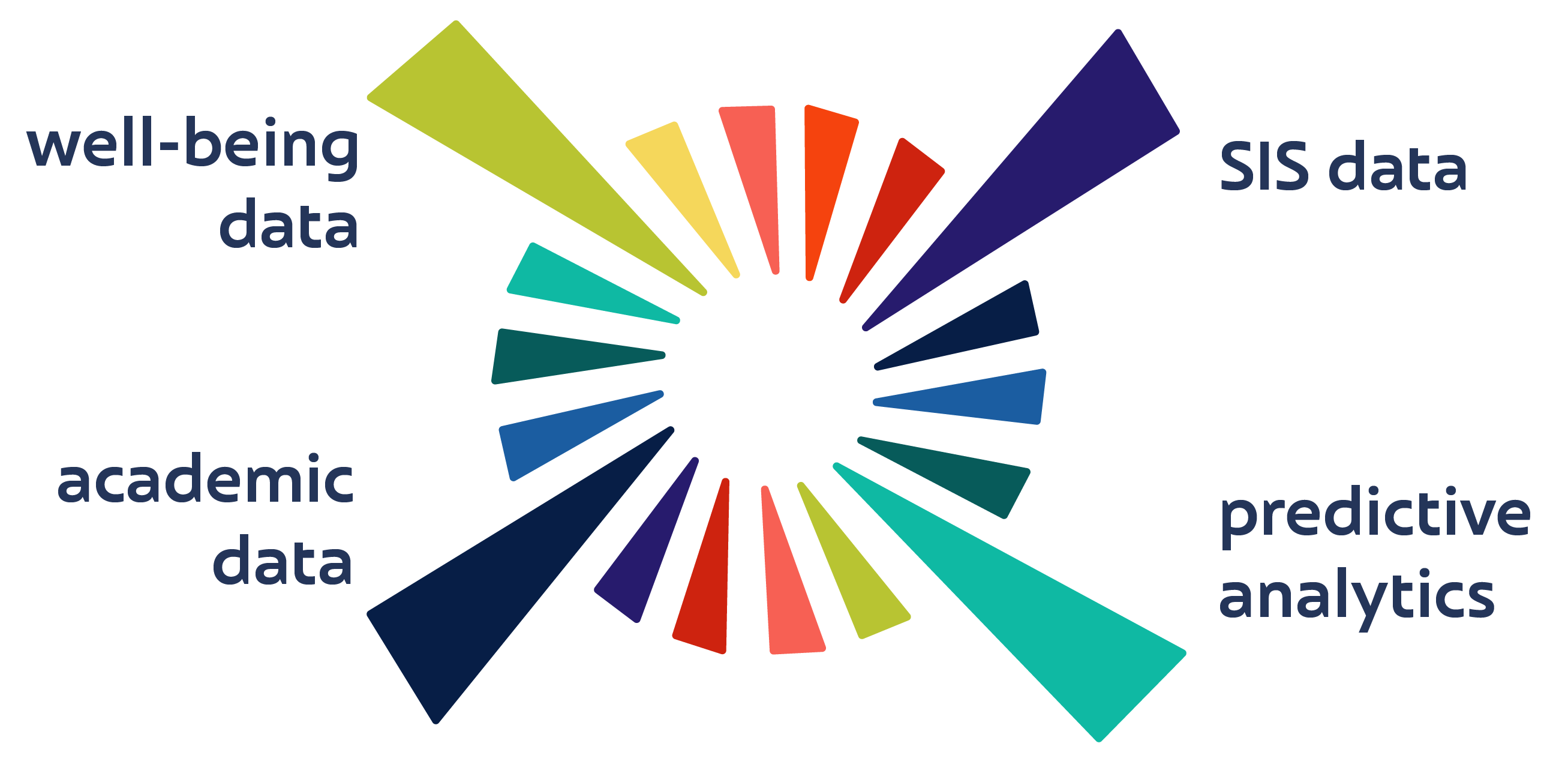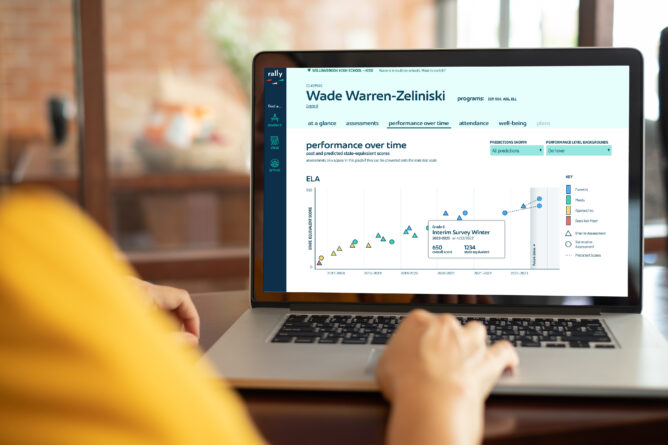Teachers already have access to many data sources and platforms, but they often need to manually combine information for instructional planning.
The Rally Analytics Platform bridges the gap between data access and data action. It reduces the time burden for educators by combining multiple data sources, enabling them to quickly identify their students successes and challenges across academic and non-academic areas.
Click here to access a free demo of Rally!
Features
- Comprehensive student data displays for on-the-ground educators and agency leaders
- Historical and recent performance on summative and interim assessments and screeners
- Data from the student information system, including attendance, behavior, and course grades
- Free survey results of students’ well-being and learning environment
- Continuously updating predictions of each student’s end-of-year state assessment result
Easy implementation and management for technology leaders
- Low-to-no training needed for highly intuitive data pages
- Usage of Ed-Fi data standard for seamless integration with important district data sources
- Dependence on district identity management system and student information system to ensure secure and appropriate data access
- Automatic role-based security with ability to upgrade users to school- or district-level access

Why Rally?
In the wake of school closures due to the COVID-19 pandemic, EA and our partners wanted to support educators for reflecting on and planning to support students’ academic and well-being needs. Today, educators still have a need for a comprehensive data platform to easily understand their students’ progress.
The platform is continuously developed through a teacher-centered design process to include functionalities that provide the most value to teachers and are intuitively useful. This process yields a set of transformative tools so that teachers can take a holistic approach to students’ individual needs, while minimizing administrative burden in implementation and maintenance. Rally features will continue to develop as educators across the country use the platform and engage with their data and students.
[Rally] is a great support tool and a way to be more proactive in helping to identify student needs they won’t talk about on their own.
